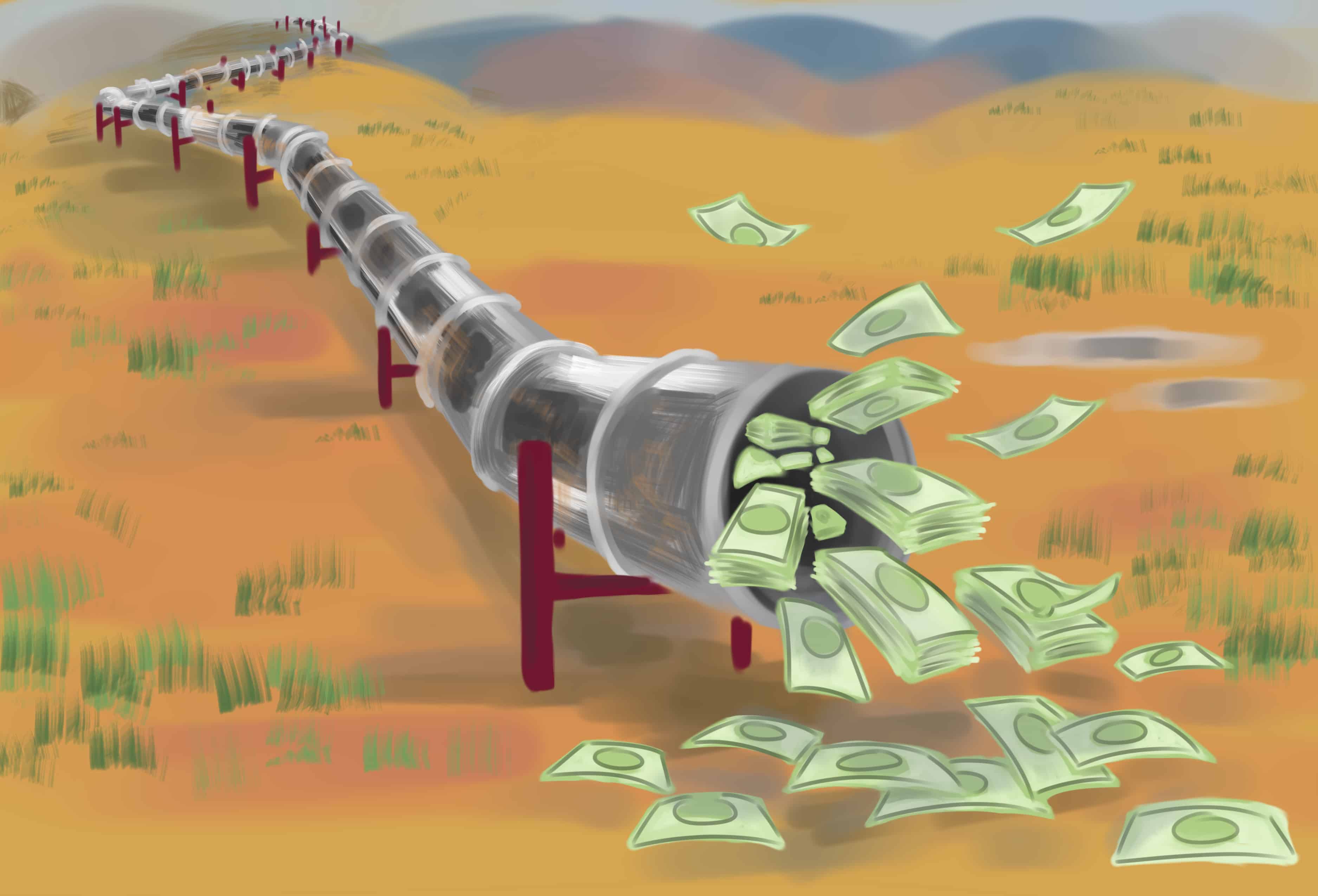On September 27, 2016, the MaRS Discovery District on College Street — a hub for public-private partnerships — held a panel discussion on “Reconciling the Indigenous-Industry Relationship.” A few days later, across the street at Queen’s Park, thousands of labourers marched up to the Ontario government’s front door with demands for ‘$15 and Fairness’ and ‘Decent Work.’
These events are intimately connected, for any confrontation between such parties and institutions — industry, Indigenous peoples, labour, and government — concern them all simultaneously.
At the MaRS event, Indigenous leaders and corporate executives discussed the Truth and Reconciliation Commission’s Calls to Action, which confronted the legacy of residential schools. The ninety-second Call to Action specifically demands that the corporate sector pursue economic development with the consultation and consent of Indigenous peoples and that their communities be the primary beneficiaries in such interactions.
As such, Indigenous chiefs on the panel at MaRS emphasized the need to restore treaty relationships in the form of ‘fifty-fifty equity partnerships’; the goal in doing so would be to respect Indigenous sovereignty and ownership, as well as to share revenues accumulated from resource extraction and development. The corporate executives reciprocated, urging the need for ‘corporate social responsibility,’ as they pursue ‘opportunity’ at the ‘open door’ of Indigenous land.
Yet, this reconciliatory language of Indigenous capitalism hardly seems possible in a larger context, when the Indigenous-industry relationship continues to be secondary to another relationship: that between government and industry. Since 2015 — the year in which the terms of reconciliation were released and a new Liberal government that promised a “renewed relationship” with Indigenous peoples came to power — not much has changed despite the recommendations made.
Through law, capital, and privatization, Indigenous treaties and interests continue to be systematically violated.
Justin Trudeau’s Liberal government has endorsed or sanctioned several controversial energy projects, including the Keystone XL pipeline, Energy East pipeline, the Site C Dam project, the Trans Mountain pipeline, and the Pacific Northwest LNG project. In opposition, more than 50 First Nations in North America recently signed an anti-pipeline treaty alliance.
Evidently, in continuing to develop environmentally detrimental ventures, industry and government elites prioritize profit-oriented capitalism at the expense of the land, air, and water sovereignty and the well-being of Indigenous peoples.
Corporate social responsibility must take the form of more than self-congratulatory, symbolic events that showcase dialogue with Indigenous peoples. It must go beyond shaking the hands of Indigenous chief leadership to concretely consult the real needs of the Indigenous masses. Ironically, one of the MaRS panelists, Richard King, is a partner of Osler, Hoskin, & Harcourt LLP, which represents Kinder Morgan, the energy company behind the Trans Mountain pipeline, further calling into question the legitimacy of such events.
In the context of ongoing state-capitalist aggression, the credibility of such a panel dialogue is doubtable. Industry is not reconciliatory, but instead it is a neocolonial adversary.
At the Queen’s Park demonstration, labour union members waved colourful flags and banners in solidarity with a common cause: one that represents better wages, working conditions, and job security. Indeed, the Ontario government’s recent increase of minimum wage to $11.40 per hour — the result of a government regulation that ties the minimum wage to the Consumer Price Index — is still minute when compared to real costs of living.
Like the federal Liberal government, its Ontarian counterpart is notorious for its disregard for the public interest. In recent years, several teachers’ strikes and the privatization of Hydro One have accentuated the Liberal government’s neoliberal, anti-labour agenda. Meanwhile, labour continues to face insecurity amidst global trends of de-industrialization, offshoring, and automation — a sentiment that clearly resonates in the United States, given the rhetoric of Bernie Sanders and Donald Trump.
Students are among the labour victims. Along with crippling tuitions and heavy workloads, we are expected to work to finance school, while as graduates we face more job insecurity than previous generations. The demand for better wages and work is our fight too. Even more noteworthy than the plight of students, however, is that of Indigenous youth, who face the brunt of current economic conditions in terms of educational and employment gaps; they are even more heavily affected than non-Indigenous youth.
Our generation thereby inherits a two-pronged situation: we face economic insecurity as future entries into the labour market and a responsibility to reconcile with Indigenous peoples as future Canadian leaders and decision-makers. This is not a responsibility to be taken lightly — not in spite of, but because of our present conditions. “With reconciliation, we have arrived at an epiphany of conscience,” claims Professor Amos Key Jr. of the Centre for Indigenous Studies. “We screwed up the first 150 years. Let’s not screw up the next 150.”
Indeed, heading towards Canada’s one hundred and fiftieth anniversary next year, the path for labour and Indigenous peoples is one of mutual, common interest. The conversation of reconciliation to pursue, however, is not with industry or Liberal governments, which clearly collude to undermine democratic interests. Rather, the conversation must be in pursuit of solidarity between their greatest common victims: Indigenous peoples and the labour force.
As students, we must be cognizant of peripheral struggles: how they relate to each other, how we relate to them, and how they relate to the broader forces. Under the threats aforementioned, we are at a pivotal moment to reconcile an Indigenous-labour relationship and re-imagine an inclusive, democratic economy that works for us all.
Ibnul Chowdhury is a second-year student at Trinity College studying Economics, International Relations, and Peace, Conflict and Justice Studies.
Editor’s Note: This article has been updated to clarify the author’s biographical information.


